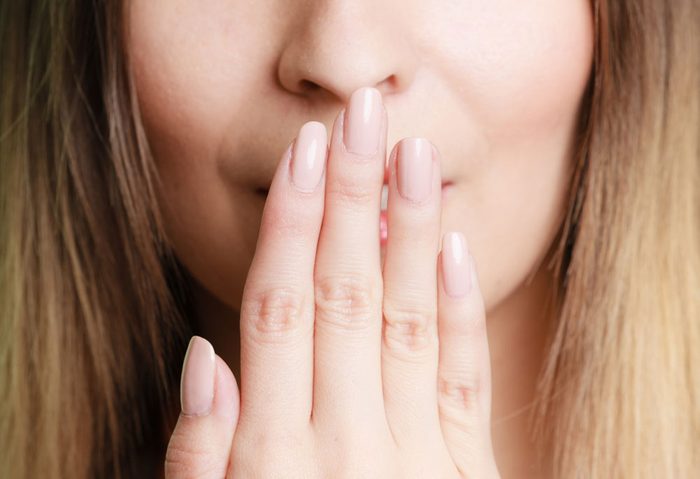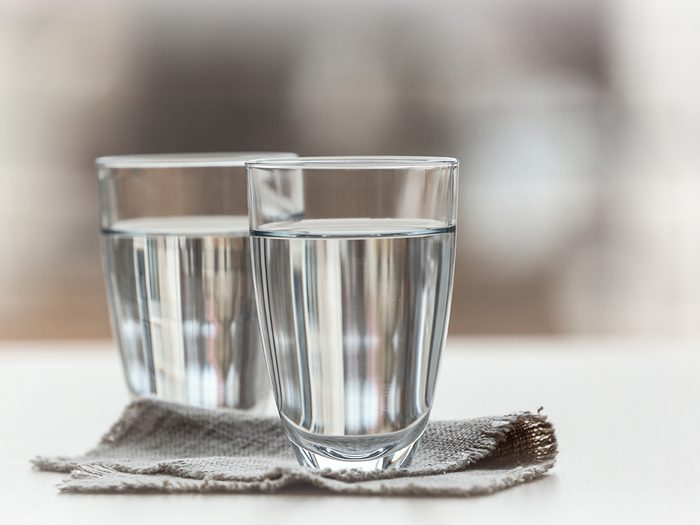Why do we get hiccups?
Is it true that the purpose of hiccups is to push air from our stomachs? Perhaps, for babies.
Research from Queen’s University recently suggested the hiccup reflex in infants may be triggered by the presence of air in their stomach, and that the hiccup acts as a burping mechanism to allow babies to drink more milk. Another, older theory about the cause of hiccups is that they occur when the vagus nerve (which runs from the brain to the abdomen) is irritated; your diaphragm contracts, which sets off a sudden closure of your vocal cords, producing the “hic” sound. Whatever the cause, when the hiccups start, you just want them to stop. Here are some ideas:
1. Hold your hands over your ears
Branches of the vagus nerve reach into the auditory system. According to the Mayo Clinic, hiccups could be caused by something as simple as a stray hair in your ear that’s touching your eardrum. Calming the nerve endings here can throw off the hiccup pattern.
Related: 11 Things Your Doctor Can Tell Just By Looking At You
2. Suck on a lemon wedge soaked in non-alcoholic bitters
According to a letter in The New England Journal of Medicine, this treatment cured 14 out of 16 people with hiccups. Don’t have bitters? The lemon alone may do the trick.
3. Breathe into a paper bag
It increases the carbon dioxide in your system and may stop spasms.
Related: Eat These Foods for a Healthy Gut
5. Swallow a spoonful of sugar, or other sweet stuff
Eat a teaspoon (5 mL) of sugar, a tablespoon (15 mL) of peanut butter, or a teaspoon of honey. The sticky sweetness may change the rhythm of your breathing, which calms the vagus nerve.
If your hiccups don’t stop, or if they recur often, see your doctor. They might be a symptom of acid reflex, stress or even a cyst.
Related: Natural Home Remedies for Belching






